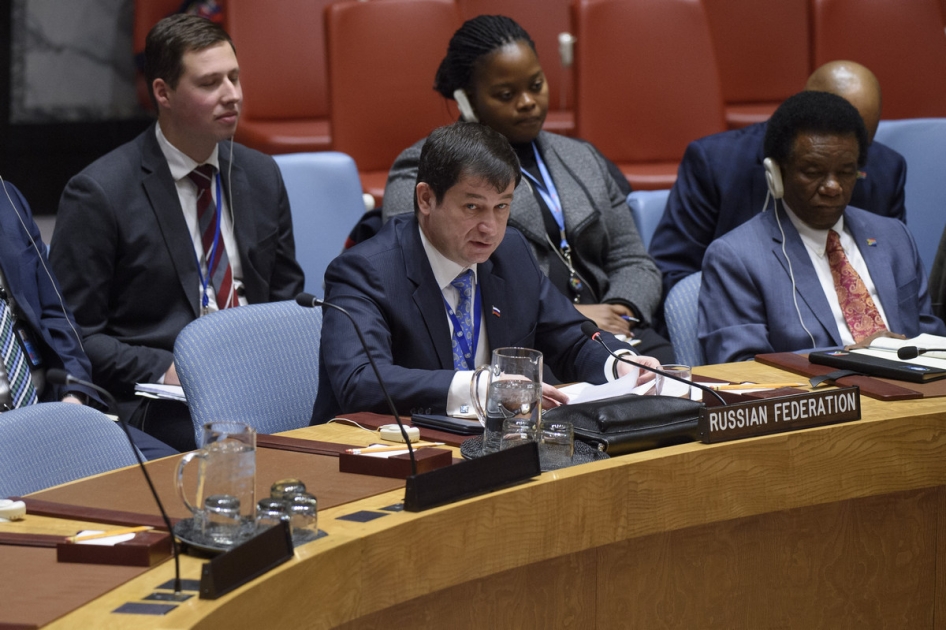Statement by Mr.Dmitry Polyanskiy, First Deputy Permanent Representative of the Russian Federation to the United Nations, at the Security Council on the activities of the United Nations Office for West Africa and the Sahel
We thank Mr. Mohamed Ibn Chambas, Special Representative of the Secretary-General for West Africa and the Sahel, for the information he has provided.
We would like to assure him once again that Russia supports his personal efforts and the activities of his Office in resolving regional crises and issues of political mediation and assistance in improving State and human rights institutions, the quest for ways to achieve economic development and the fight against extremism and terrorism.
It is encouraging that in the second half of 2018, elections took place in a number of the countries in the region in a generally calm atmosphere. We hope that the new electoral cycle beginning this year, which includes an even greater number of countries, will also take place in lawful and orderly conditions. We have to agree with Mr. Chambas that, despite the efforts that have been made, extremism, terrorism and organized crime, unfortunately, continue to gather strength in the region.
As an epicentre of this kind of lawless activity, the States of the Sahel, to a significant extent, have become victims of the rogue actions of some countries that led to regime change in Libya. If the situation there is not stabilized, it will not be easy to achieve peace and stability in the Sahel, as many regional stakeholders have rightly pointed out. Eradicating terrorism is one of the top priorities on the African agenda.
In that regard, the efforts of States in the region to combat the growing challenges are extremely timely, and that is all the more important in the current circumstances, when terrorist groups are increasingly actively coordinating their actions. We support the operations of the Joint Force of the Group of Five for the Sahel and the Multinational Joint Task Force aimed at fighting Boko Haram, and we are providing assistance to African Governments through bilateral channels.
We do not believe in the possibility of dialogue with terrorists, including Boko Haram. Unfortunately, security threats affect States’ ability to deal with their socioeconomic problems, which is why efforts to ensure security and stability efforts have to be implemented as part of a comprehensive approach. Military and counter-terrorism measures must be combined with efforts to strengthen State institutions, undertake systemic economic and social development, promote a culture of respect for human rights and the rule of law and provide jobs for young people.
We greatly appreciate the activities of the United Nations Office for West Africa and the Sahel and the Organization’s specialized agencies in providing a broad range of assistance to the countries of the region. It is crucial to ensure that those efforts are closely coordinated with the African Union, the Economic Community of West African States and other organizations. We consider it important to increase the effectiveness of the United Nations Integrated Strategy for the Sahel, since we feel that its potential has not yet been fully realized.
The views of the countries for which it was developed are crucial to achieving that. It will also be impossible to get anything done without properly coordinating the numerous assistance programmes for the region. Their effectiveness also depends on whether the entities that are present in the region — and I particularly have in mind those that are part of the United Nations system — are operating within their area of responsibility and taking into account the principle of division of labour.
It seems to us that only through purposeful collective action that is carried out in appropriate formats and does not create conflicting areas of competence can we achieve the results we seek.
